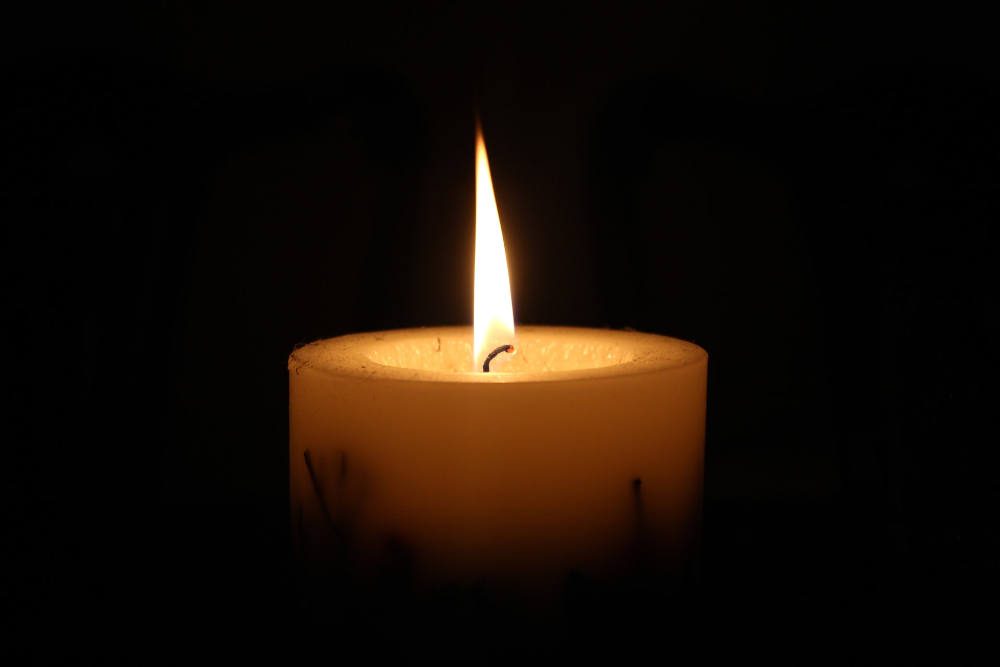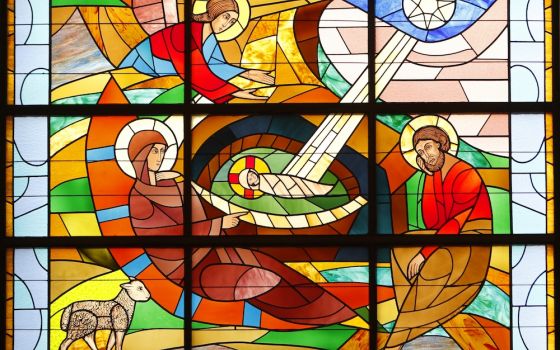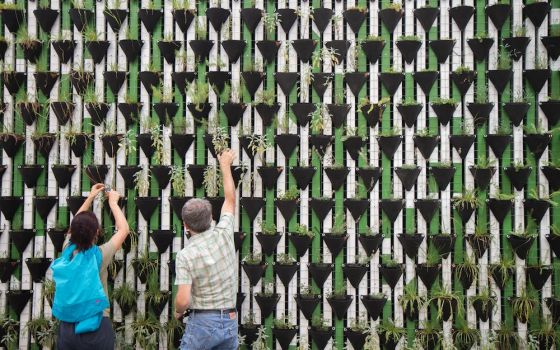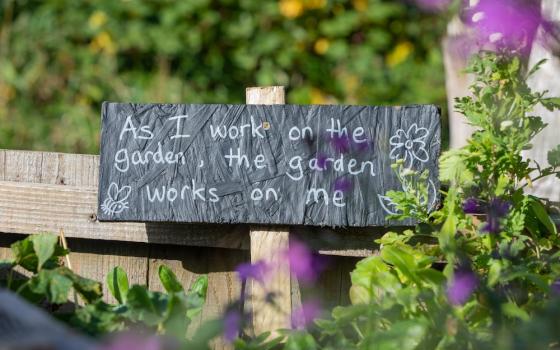
(Unsplash/Kyle)
Editor's Note: Welcome to Simple Advent, Abundant Life. These daily Advent reflections will explore connections between simple living and abundant life on the earth. They are inspired by the Advent Simplicity Challenge at the Ignatian Solidarity Network. Sign up here to receive the reflections each day in your inbox.
Second week of Advent—Sunday Reflection
Day 8: Sunday, Dec. 6
REFLECT
That was the start of a practice I've taken to calling Candle Hour. An hour before I go to bed, I turn off all my devices for the night. I hit the lights. I light a candle or two or three — enough to read a book by, or to just sit and stare at the flame, which, by drawing oxygen, reminds me I need to breathe, too. ... Candle Hour doesn't even need to last a full hour, though; sometimes it lasts far longer. I sit until I feel an uncoupling from the chaos, or until the candle burns all the way down, or sometimes both. ...
At night, by candlelight, the world feels enduring, ancient and slow. To sit and stare at a candle is to drop through a portal to a time when firelight was the alpha and omega of our days. We are evolved for the task of living by candlelight and maladapted to living the way we live now.
Julia Scott, Letter of Recommendation: Candle Hour, The New York Times
On the second Sunday of Advent, we light on our Advent wreath the Bethlehem Candle, which represents faith. Lighting candles during this season of darkness (in the Northern Hemisphere at least) reminds us of our call to be light in the world and is a symbol of hope of the light and promise of abundant life that comes from Jesus.
In a world that has many bright lights (or screens) that compete for our attention, we take time in Advent to reorient ourselves to natural candlelight and the light of our faith.
We also remember that living by candlelight helps us to experience time as nature intended. Artificial lighting allows us to extend the day instead of trusting the rhythm of the earth and of our bodies to rest and restore ourselves when darkness falls. Living in this way, in sync with nature, is an act of humility because we trust that although our work in the world is unique and important, it can wait until the sunrise as we leave whatever we had hoped to accomplish in God's hands for the night.
To honor this sacred vision of time, I invite you into an experience that I learned about a few years ago from an opinion piece in The New York Times that has captivated my imagination and that has helped me to slow down at the end of my day: candle hour. The practice is deceptively simple and is described in the quoted excerpts above.
For a period during the pandemic, when it felt particularly hard to connect, a friend and I committed to doing a 10-minute "candle hour" in our own homes each evening before bed. Sitting alone in my room, I felt at peace and connected at a level that has escaped me for most of this year.
Tonight, I invite you to join this practice along with everyone else who reads this. We will be in community in our solitude. As the sun slips below the horizon, avoid turning on lights or using electronics the hour before you go to bed. Sit and stare at a candle, read, pray, stretch, shower or do whatever it is that will help you unwind and slow down by candlelight. If you don't have a candle, simply get comfortable and sit in the darkness. Notice the paradox of abundance in the emptiness and spaciousness of time.
ACT
When the sun sets today, practice a "candle hour" for whatever period of time you desire before bed.
View the Advent Simplicity Calendar for further reflection on simplicity of time.
Simple Advent, Abundant Life
reflect | act
Sign up to receive daily emails for this Advent reflection series.
Advertisement








